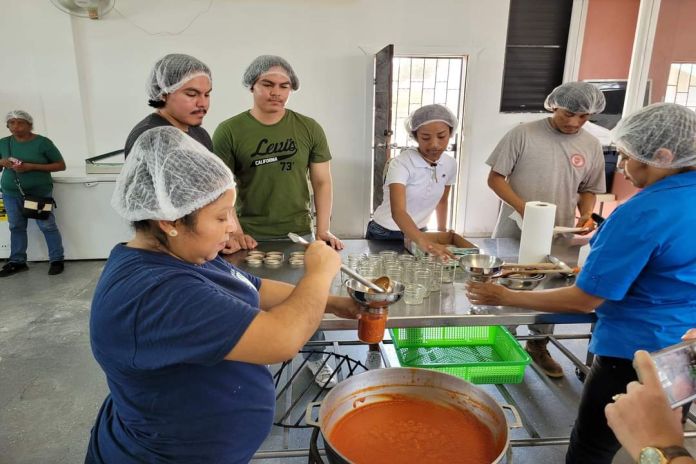BELMOPAN, Belize – The Inter-American Institute for Cooperation on Agriculture (IICA) in collaboration with the Food and Agriculture Organization of the United Nations (FAO), a leading advocate for the growth and development of Micro, Small, and Medium Enterprises (MSMEs), announced the successful implementation of a comprehensive capacity building program aimed at enhancing MSME knowledge in various critical areas.
The intervention provided a gateway for exporters in the Caribbean who wish to directly connect to buyers in the Caribbean and other international markets. The activities specifically sought to build the capacity of agro exporters to take advantage of opportunities in markets. The support provided to beneficiaries included linkages to buyers and suppliers, access to information to support shipping, testing of products for market access, packaging and labelling design and/enhancement as well as general capacity building.
The region has prioritized the reduction of imports from extra-regional sources by 25 percent by 2025. As such, intra-regional trade is seen as one mechanism to achieve this. In addition, there are various opportunities in extra-regional markets. Besides the call by governments for exporters to intensify export efforts, the intervention builds on existing relationships and demands by the private sector for continued support to access markets.
To facilitate these efforts, IICA in collaboration with FAO and partners such as Procasur (Cosechando Innovaciones, Sembrando Oportunidades), European Union (EU), Investing in Rural People (IFAD), the Organization of African, Caribbean and Pacific States (ACP) and Farmers’ Organization for Africa, Caribbean and Pacific (FO4ACP), developed the intervention to support exporters and processors in the region to maximize their potential.
The intervention entailed tangible support to beneficiaries to enhance either their labels, packaging or shipping efforts. However, the core areas included the hosting of a virtual trade mission which was held in November 2023 and various capacity-building sessions to support the participation in the trade mission as well as to boost competitiveness and meet market requirements. The trade mission featured over 200 regional businesses and generated significant opportunities for both regional exporters and buyers.
The program, which spanned several weeks, provided MSMEs with specialized training in key areas essential for their growth and success.
These included Hazard Analysis and Critical Control Point (HACCP) and Pre-Requisite Introduction Training: Participants received in-depth training on HACCP principles and pre-requisite programs to ensure food safety and quality in their operations.
Standards and Conformity Assessment: Labelling and Packaging: MSMEs were equipped with the knowledge and skills to meet labelling and packaging standards, enhancing the marketability of their products and ensuring compliance with regulatory requirements.
Practical Training on Product Development (Value-Adding): Participants engaged in hands-on sessions where they learned value-adding techniques for product development, enabling them to create innovative and marketable products from raw materials.
Good Manufacturing Practices (GMP) & Sanitation Standard Operating Procedures (SSOP): MSMEs received training on implementing GMP and SSOP to maintain high standards of hygiene and sanitation in their production processes, thereby ensuring product safety and quality.
The trainings were delivered with the support of the Ministry of Agriculture, Food Security and Enterprise, the Belize Agricultural Health Authority, Belize Trade and Investment (BELTRAIDE), Belize Bureau of Standards and Motiva Quality Network.
Commenting on the success of the program, FAO Correspondent, Armando Aban, stated, that ” these trainings provide tools to improve the quality standard and play a pivotal role in improving the delivery of services and products in Belize.”
The program received positive feedback from participants, with many expressing gratitude for the valuable insights gained and the practical nature of the training sessions.
IICA and FAO remains committed to supporting MSMEs through initiatives like these and look forward to continuing to make a positive impact on the local business landscape.





